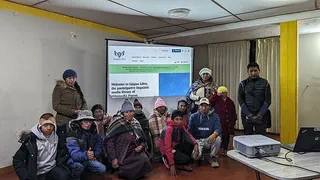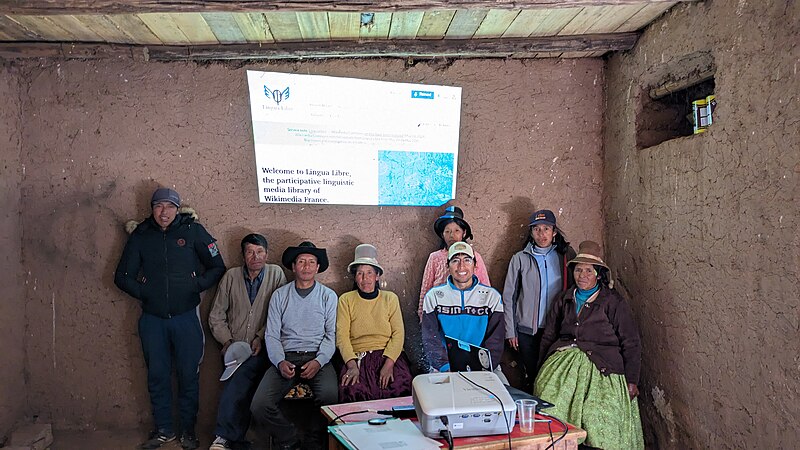Quechua Voices
 Image credit: Elwin Huaman
Image credit: Elwin HuamanThe Quechua Collao (que:Qichwa Qullaw), is a dialect of the Southern Quechua language, spoken in southern Peru, mainly in the Puno region (Glottolog:puno1238), where the 40.6% of the population uses it as a first language. However, its use is only limited to oral communication. For instance, the Quechua language is not taught as a subject of instruction in education, and it is mainly used in agricultural and cultural contexts or chit-chat. That means that the language it is not written or read anywhere, and no resources are produced nor found accessible. The availability of linguistics resources is nowadays more urgent in order to save a language and its community.
To overcome the lack of resources and support a harmonization process of the Quechua language, we have created a structured knowledge base for the Quechua language, called Qichwabase (a Wikibase instance). It contains over 1 million statements about Quechua words and their usage, and translations of Quechua words into other languages, e.g. English, German, Italian, and Spanish. Besides, it contains over 20 Quechua variant vocabularies.
Objectives
Our objective is to record the voices of the Quechua Collao vocabulary in various age ranges, and make the recordings available on Wikimedia Commons. So, the Quechua speakers, quechua learners, teachers, students, and ultimately scientists can build projects on top of it. For instance, the recordings can be used for the production of Open Educational Resources in mother tongues. In addition, we will run a workshop on how to contribute to Wikimedia Commons and its related projects to save minoritized languages.

Methodology
The work will be carried on field, at the Nuñoa town, which is located at 4100 m.a.s.l. in the Puno region of Peru, where, the inhabitants speak mainly the Quechua Collao variant. Our approach will follow the activities:
- Filter the Quechua Collao vocabulary from the Qichwabase
- Create the lists of words to be recorded per day
- Select speakers from various age ranges and genders
- Record the lists of words by using the LinguaLibre tool
- Make the recordings accessible on Wikimedia Commons
How it started
The importance of this project came from a quechua community meeting in 2023. We were running the Reading Wikipedia in the Classroom program in Puno, Peru, and the quechua speakers made a point to say:
It would be nice to have our quechua language vocabulary preserved somewhere, because the new generations are not speaking it any more, nor using it on school.
We discussed the fact of recording all quechua vocabulary, which is around 25 000 words according to Qichwabase. Therefore, we agreed with the community at the end of the program that it could be viable to start with one specific Quechua variant, in this case the Puno Quechua variant with more than 6500 words.
